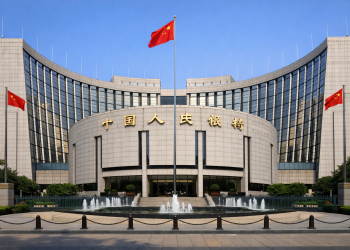Asian stock markets presented a mixed picture at Wednesday’s open, with Japanese equities notably declining after US President Donald Trump threatened fresh tariffs on Japan.
In contrast, Singapore’s market surged to a new record high, while investors across the region digested recent comments from US Federal Reserve Chair Jerome Powell.
Indian benchmarks, including the Sensex, are expected to open marginally higher.
The trading day began with a sharp downturn in Tokyo.
Japan’s benchmark Nikkei 225 lost 1.16% at the open, and the broader Topix declined 0.4%, as the market reacted to the new tariff threat from President Trump.
Later readings showed the Nikkei sliding 1.32% and the Topix losing 0.64%, indicating sustained selling pressure.
In a starkly different story, Singapore equities climbed 0.4% to reach a new record high of 4,005.39 points on Wednesday morning local time, surpassing its previous record set on March 28, according to data from LSEG.
This strong performance follows a recent upgrade of Singapore equities to “Attractive” by UBS on Tuesday.
“The market offers a defensive safe haven amid ongoing geopolitical uncertainty, backed by a stable currency, generous dividend yields, and a steady earnings outlook,” commented Tan Min Lan, head chief investment office in the APAC team at UBS Global Wealth Management.
“The ongoing equity market reforms provide additional catalysts in the form of a SGD 5 billion capital injection and potential value-up initiatives to unlock shareholder value,” she added.
Elsewhere in the region, performance was varied. South Korea’s Kospi was 0.84% lower in early trade (later seen down 0.42%), while the small-cap Kosdaq was flat.
Australia’s S&P/ASX 200, however, rose 0.43% (later seen up 0.49%). In Greater China, Hong Kong’s Hang Seng index rose 0.73%, while the mainland CSI 300 was flat.
Powell’s tariff warning and Korean inflation data in focus
Investors across the region are also parsing the latest comments from US Federal Reserve Chair Jerome Powell.
On Tuesday, Powell stated that the central bank would have already cut interest rates if it weren’t for US President Donald Trump’s ongoing tariff initiatives, highlighting the significant impact of trade policy on monetary considerations.
Adding to the economic picture, South Korea’s headline inflation rate for June rose at its fastest pace since January, coming in at 2.2% year-on-year.
This figure was slightly higher than the 2.1% expected by economists polled by Reuters and up from the 1.9% seen in the previous month.
The country’s core inflation rate, which excludes food and energy costs, held steady at 2% compared to the same month last year and was 0.1% higher than in May.
Indian markets look for a mildly positive start
Indian stock market benchmark indices, the Sensex and Nifty 50, are expected to open marginally higher on Wednesday, tracking the mixed but generally resilient cues from other global markets.
The trends on Gift Nifty also indicated a mildly positive start, with Gift Nifty trading around the 25,675 level, a premium of nearly 32 points from Nifty futures’ previous close.
This follows a session on Tuesday where the domestic equity market ended marginally higher, with the Nifty 50 successfully holding above the 25,500 level.
The Sensex had gained 90.83 points, or 0.11%, to close at 83,697.29, while the Nifty 50 settled 24.75 points, or 0.10%, higher at 25,541.80.
US markets see tech sector pullback
U.S. stock futures were little changed in early Asian hours.
This came after investors began the second half of the year with a reduced appetite for technology stocks, leading to a mixed close on Wall Street overnight.
The S&P 500 inched down 0.11% to close at 6,198.01, and the Nasdaq Composite lost 0.82% to settle at 20,202.89.
The blue-chip Dow was the outlier, gaining an impressive 400.17 points, or 0.91%, to end the day at 44,494.94.
The post Asian markets open: Japan’s Nikkei falls 1.16% on tariff threat; Sensex to open up appeared first on Invezz










